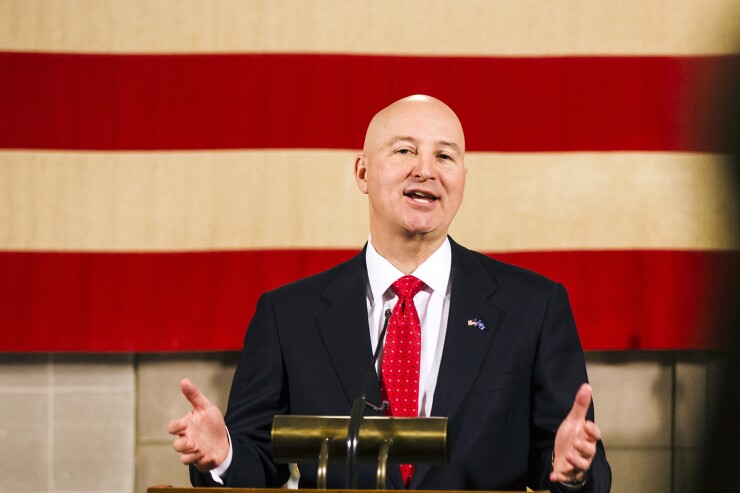Nebraska lawmakers have introduced two bills that would reverse a revenue boost the new federal tax law would give the state government.
The elimination of personal tax exemptions could see Nebraska taxpayers pay an extra $220 million in state taxes, according to the Nebraska Department of Revenue. The value of each Nebraska exemption was based on the federal exemptions, which were eliminated under the congressional tax plan.
But Gov. Pete Ricketts, a Republican, isn’t looking to bolster the state’s coffers with the additional revenue despite a looming $173 million shortfall.

At the governor's request, State Sen. Jim Smith, R-Papillion and the state’s Department of Revenue proposed a bill to make adjustments to Nebraska’s tax code.
The legislation would retain the personal exemption credit against Nebraska income taxes. Nebraska taxpayers could continue to claim credits for themselves and each of their dependents. For the 2018 tax year, each credit is worth $134.
Tax Commissioner Tony Fulton, a Ricketts appointee, says he was directed to "neutralize" the effects of the federal law so that the state won't collect any more or less revenue from taxpayers.
“The Nebraska Department of Revenue and the Legislature’s Revenue Committee have been carefully studying the Tax Cuts and Jobs Act,” said Fulton in a statement. “To retain existing tax policy and prevent a state tax increase, the Legislature must take action to make adjustments to Nebraska’s tax laws.”
Sen. Burke Harr, D-Omaha, has proposed legislation that would keep Nebraska's personal exemptions but impose income limits on who can qualify. The bill would exclude individuals with a federal adjusted gross income of more than $100,000 and married couples with incomes greater than $200,000.
Harr said the state should keep some of the excess revenue, at least temporarily, until state officials understand how the federal plan will affect Nebraska's tax collections.
"My bill is trying to hold as many people as possible harmless while acknowledging we're in a fiscal crunch," said Harr, a Revenue Committee member. "I think we need to be really cautious about what we do with tax policy based on the federal changes until we understand what all the implications are."
The state of Nebraska is facing a $173 million shortfall in the current two-year budget cycle.
S&P Global Ratings assigns Nebraska an issuer credit rating of AAA and Moody’s Investors Service rates the state Aa2. The state is not an active debt issuer because the state's constitution prohibits it from issuing general obligation bonds in excess of $100,000.





